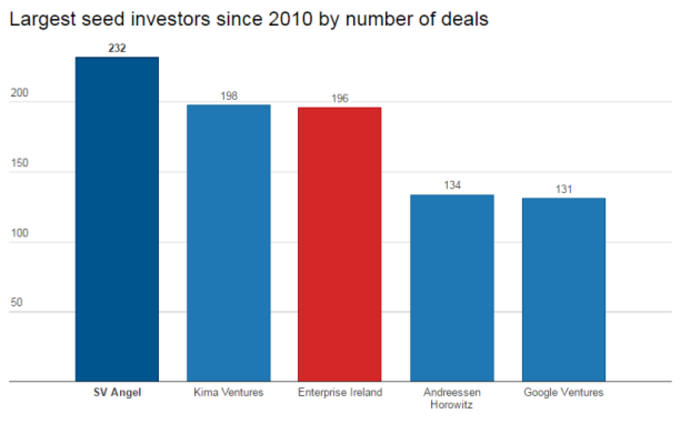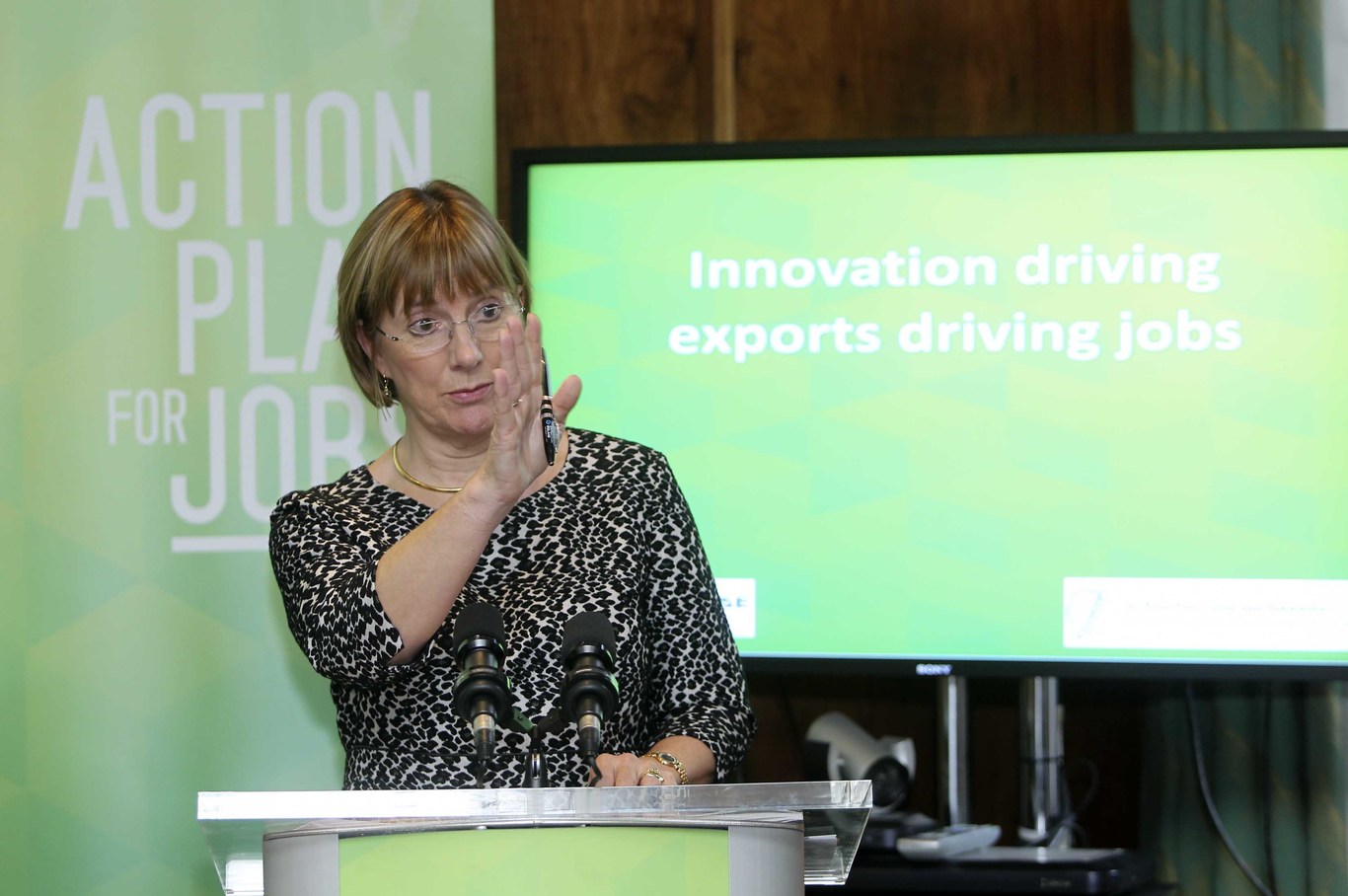Enterprise Ireland could 'step back' if private investors filled the funding gap
Julie Sinnamon said the organisation’s backing is seen as a global ‘seal of approval’.
ENTERPRISE IRELAND IS crucial for ensuring that there is a functional seed-funding market in the country, according to the organisation’s head.
In an interview with Fora, CEO Julie Sinnamon said the state body could step back “if there was a fully functioning seed market” but added there was still a strong need for its work.
By its own estimates, Enterprise Ireland is Europe’s largest seed investor based on its total number of investments.
In November, PitchBook, one of the world’s leading investment platforms, ranked the taxpayer-backed organisation as the third-biggest provider of seed funding worldwide.
That put it ahead of tech giant Google’s venture capital wing, Google Ventures, and US-based industry giant Andreessen Horowitz.
The most-recent, full-year statistics available show that in 2014 Enterprise Ireland made 377 equity investments in client companies for a combined total of €33 million.

Its splurge compared to just under €44 million in seed funding from all the private players in the Irish market during 2015, according to the Irish Venture Capital Association. Seed-funding activity has dropped 58% in the five years since 2010.
Drew O’Sullivan, the lead equity advisor for cross-border business group InterTradeIreland, warned earlier this month that a lack of seed funding could threaten the development of some of Ireland’s most-promising new companies.
Displacement
When asked if Enterprise Ireland could be stifling private sector seed investment in Ireland, Sinnamon replied: “I wouldn’t say that. All of our high-potential startups are funded on the basis of matched funding.
“About a third of those are getting seed funds, and the other two-thirds are raising money through business angels and friends, family, etc. What you typically find is when they get to the next stage, about nine, twelve months further down, they will then start talking to seed funds.”
“I don’t think there is displacement. At the end of the day, if there was a fully functioning seed market we could step back. But we are a key player there because there still is a strong need for us to encourage those early stage companies which are at the higher-risk end.”
She cited the organisation’s supports of several major seed funds. The four largest funds it supports have a combined €124 million of assets. Bank of Ireland and AIB manage each manage two of the funds.
The fact that most of those funds had now been distributed in their entirety also contributed to the general decline in the wider seed-funding market.
‘Badge of honour’
Sinnamon said Enterprise Ireland backing could also help domestic companies secure additional capital when looking for funding overseas.
“If you are going into the international market place and the government, through Enterprise Ireland, has invested in your company, it’s a seal of approval and helps to open doors. It gives great comfort to many international companies that a small startup has government funding,” she said.
You can read more from our full interview with Julie Sinnamon on Fora later this week.






